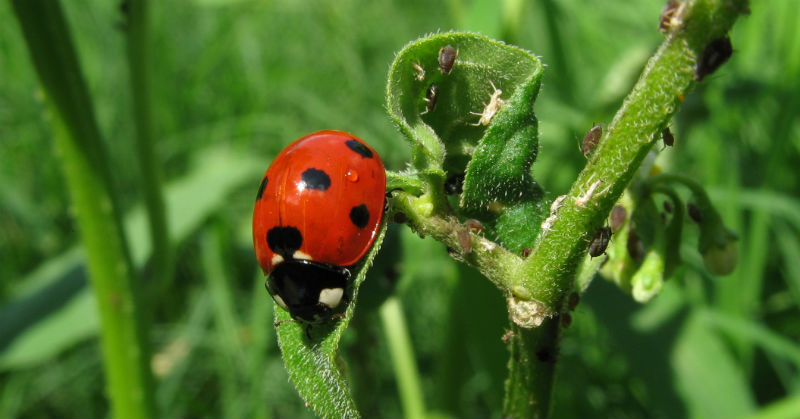When most people think of insects in their garden, they usually think of annoying pests that eat away at their hard-earned crops. While it is true that there are many garden-damaging insects out there, such as the infamous aphid and many other common bugs such as grasshoppers, maggots, and moths, there are just as many insects out there that can actually help your garden thrive. These insects protect our gardens by eating harmful pests and pollinating certain plants. This is why it is very important to distinguish between the bad insects and the good insects, and to make sure that you aren’t repelling the ones that are helping your garden flourish.
Ladybugs
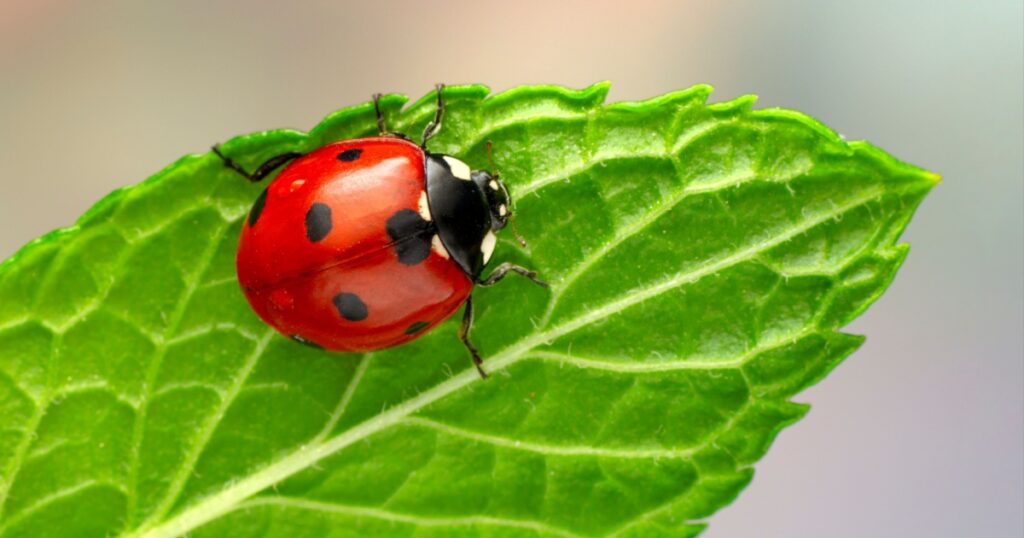
Ladybugs are one of the most commonly seen insects in general and are popular among gardeners for their ability to get rid of pests. Ladybugs are the primary predators of aphids and have been known to consume up to 50 a day, with many estimating that a ladybug eats over 5,000 aphids in its lifetime. However, they also eat many other common gardening pests such as scales, mealybugs, leaf hoppers, mites, and lots other soft-bodied insects.
Hoverflies
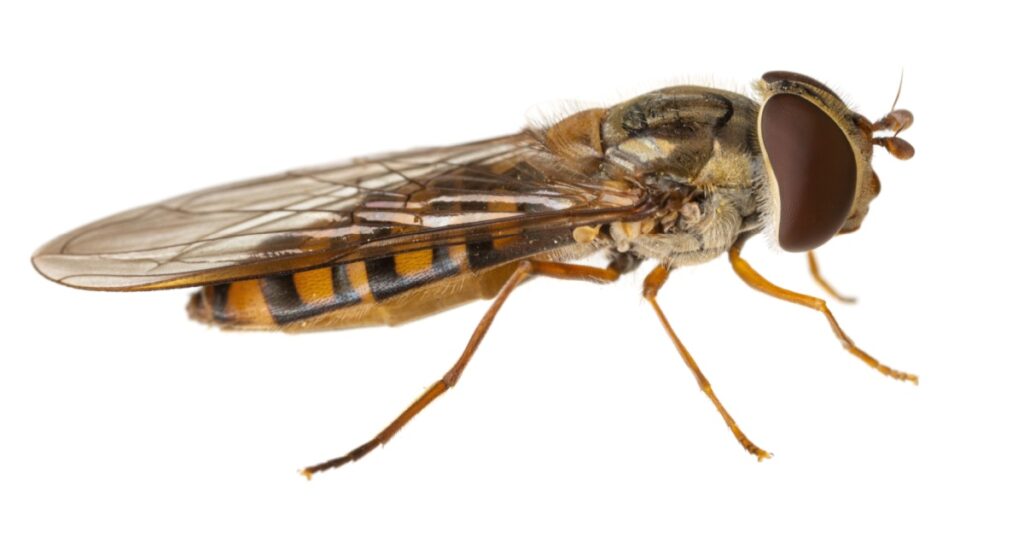
Hoverflies are a family of flies that is commonly mistaken for wasps or bees due to their distinctive yellow-black pattern. Many species of hoverflies have proven useful to gardeners, as hoverfly larvae feed aphids located on garden plants and crops. Aside from eating harmful pests, hoverflies are also useful for the fact that they contribute to pollination. Hoverflies are said to be important for the pollination of carrots, onions, and many different types of fruit trees.
Green Lacewings
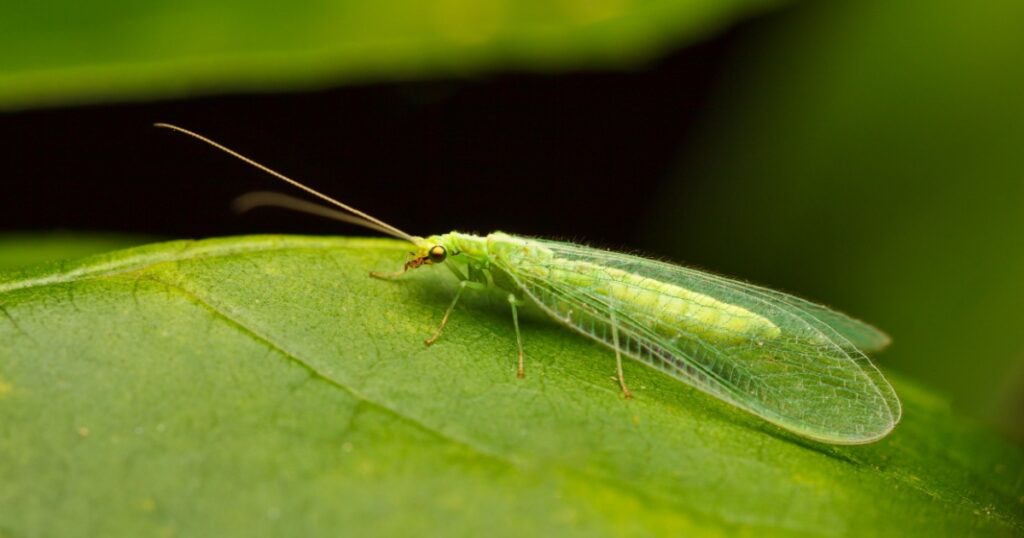
Green lacewings are another great predatory insect to have around the garden. Green lacewings lay their eggs on the end of vegetable stocks, which protect their larvae from predators and also protect the crops from pests. Green lacewing larvae are often referred to as “aphid lions” in the gardening community due to their large appetite for aphids. They are estimated to eat around 200 aphids a week, and also prey on other soft-bodied pests such as mites, thrips, mealybugs, whiteflies, and small caterpillars.
Read More: How to Keep Bugs Out of Your House this Summer (8 Natural Methods)
Ground Beetles
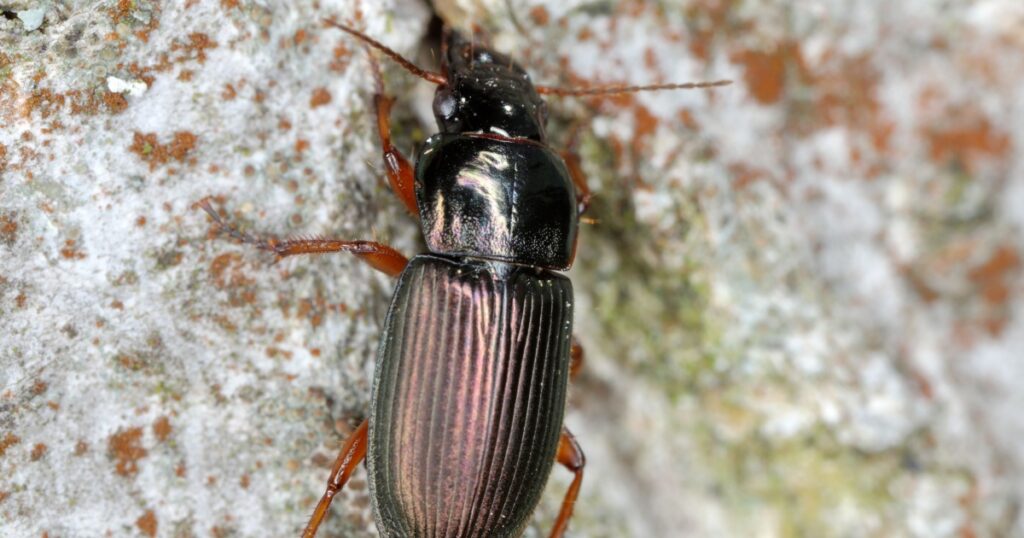
Ground beetles are great for getting rid of pests that can be found in your soil as well as on your plants. Ground beetles feed on common invertebrate pests such as aphids, caterpillars, maggots, and slugs. There are also several species of ground beetles that only feed on certain pests, such as the “caterpillar hunter”, allowing you to have direct control over which insects you want going and which ones you don’t want to be eaten. Ground beetles also act as an effective natural herbicide by preventing harmful weeds from popping up in your garden. They do this by consuming the seed of the weed plant before they are able to sprout and multiply.
Parasitic Wasps
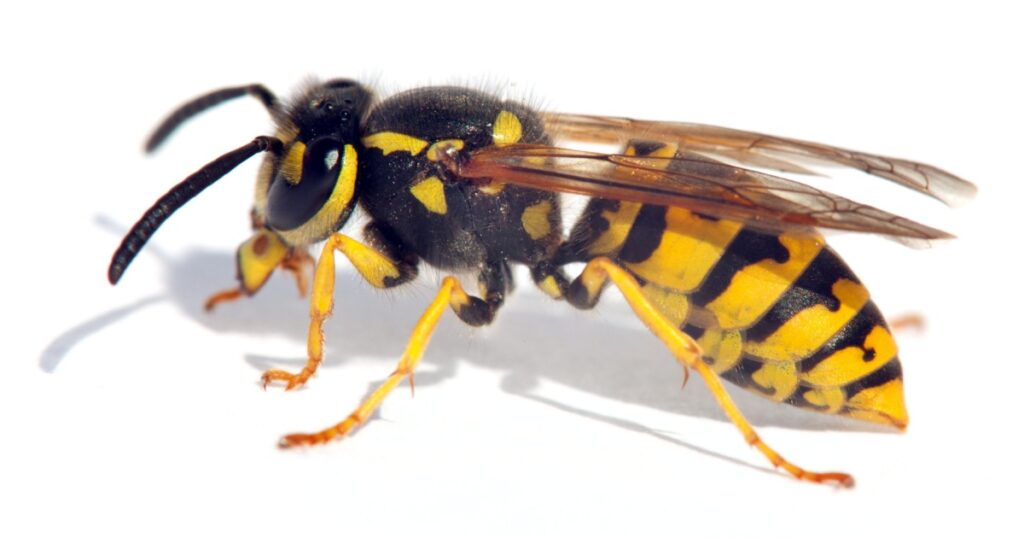
Although these wasps might have a scary-sounding name, they are a tiny, non-stinging type of wasp that is considered to be the best insect when it comes to pest control in the garden. They are known to parasitize (their form of consuming) over 200 different species of pests, making them the most versatile insect when it comes to pest control.
Read More: Warning: A ‘Robust’ Explosion Of Stink Bugs Could Be Headed Your Way
